
by Gideon Marcus
Sliding Downhill
In the twenty years since the beginning of the Cold War, there have been many potential flashpoints between East and West. In 1950, Chinese-backed North Koreans almost took the entire Korean peninsula in a see-saw, later stalemated, conflict that lasted until 1953. Berlin twice became the hot spot — during the 1948 blockade and after the building of the Wall in 1961. Cuba, too, has been a fraught locale, with the 1959 Communist takeover followed by the disastrous American-backed invasion in 1961 and then the near-calamitous Missile Crisis of 1962.
And then there's Vietnam.
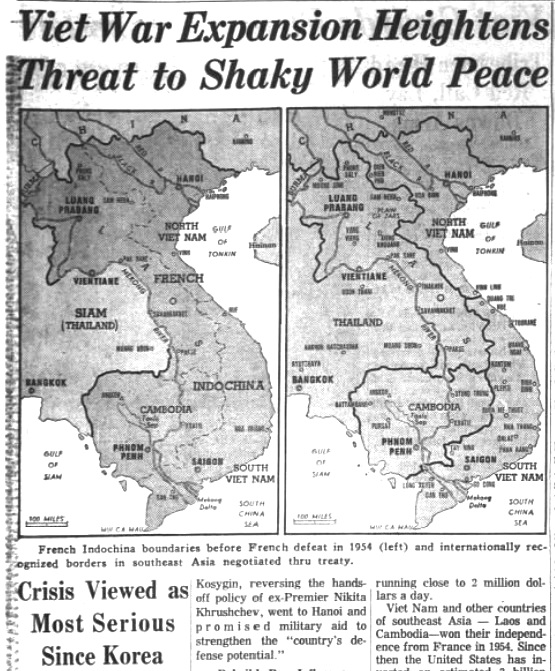
Formerly part of French Indochina, the region has been divided into two roughly equal halves since 1954, when Ho Chi Minh's Viet Cong threw off the colonial yoke in 1954. Since then, the Communist North has engaged in both insurgent and conventional tactics against the South.
Of course, the United States has backed South Vietnam despite it being a rather corrupt and authoritarian state that, for the past two years, has seen a revolving door of junta leaders running the country. American involvement included air support and "military advisers", our presence including about 20,000 troops, all told.
And then came the Gulf of Tonkin incident last August, in which American naval vessels reportedly were attacked off the coast of North Vietnam. That opened the door for a flood of American air strikes, including into neutral Laos to bomb the "Ho Chi Minh" supply trail.
It was perhaps inevitable that the Viet Cong would hit back, first with a bombing of an American billet in Saigon last month, and now, on February 6, with a mortar attack on Camp Holloway, near Pleiku in central South Vietnam.


8 soldiers died in that attack, more than 100 were injured, and there was extensive damage to American equipment. In retaliation, the U.S. launched Operation Flaming Dart, yet further intensifying the air war. Wives and children of American personnel were ordered to leave Vietnam, Hawk surface to air missile batteries were set up at the airbase in Da Nang, and a general escalation of the conflict appears inevitable. Publications, from the conservative Chicago Tribune to liberal LIFE Magazine, are clamoring for direct involvement.
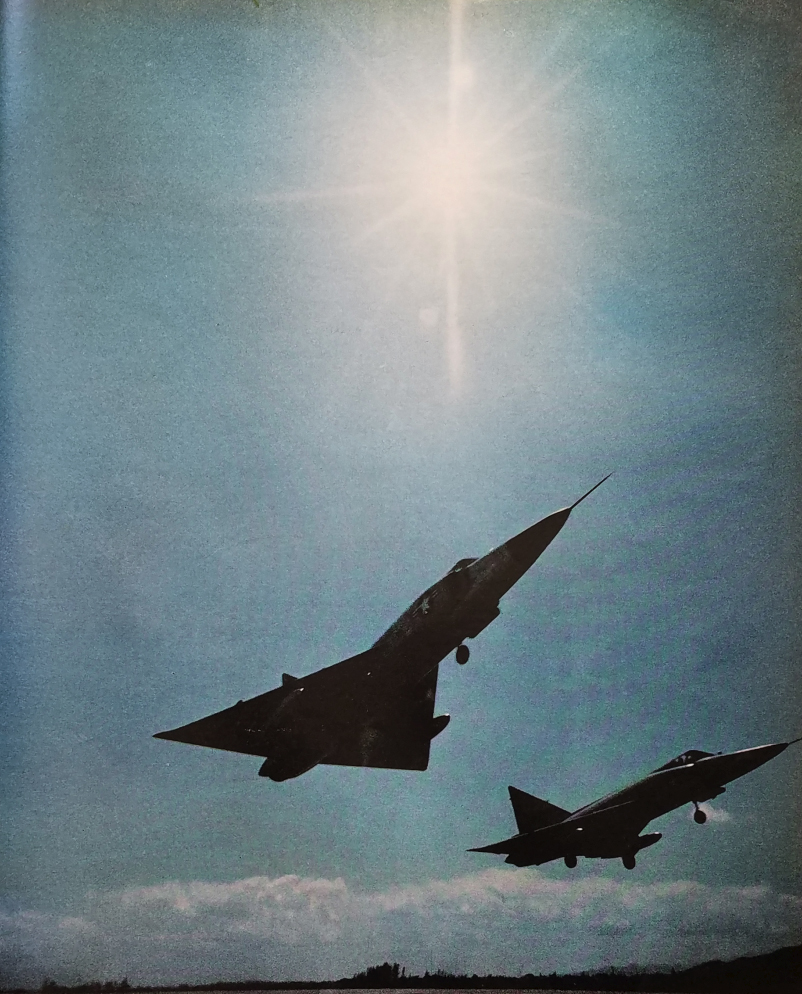
That means American troops abroad, and anyone between 18-25 not currently enlisted in the military better start reconsidering their plans for the next few years. People like my nephew, David, who just turned 23. He's married, has a young son, and goes to UCLA, so perhaps he's safe. For now.
In any event, the papers are full of Vietnam news these days, and the voices against escalation are being drowned out by the hawks.

It looks like we're about to slide, slow-motion-wise, into another Korea. Call me an iconoclast peacenik, but I'm registering my protest early. This won't end well.
No Relief in Sight
For those hoping that the latest issue of Fantasy and Science Fiction would offer a respite from the world's glum news, I'm afraid I have to disappoint you. The return to form we rejoiced in last month quickly fizzled. This month's mag is a dud:
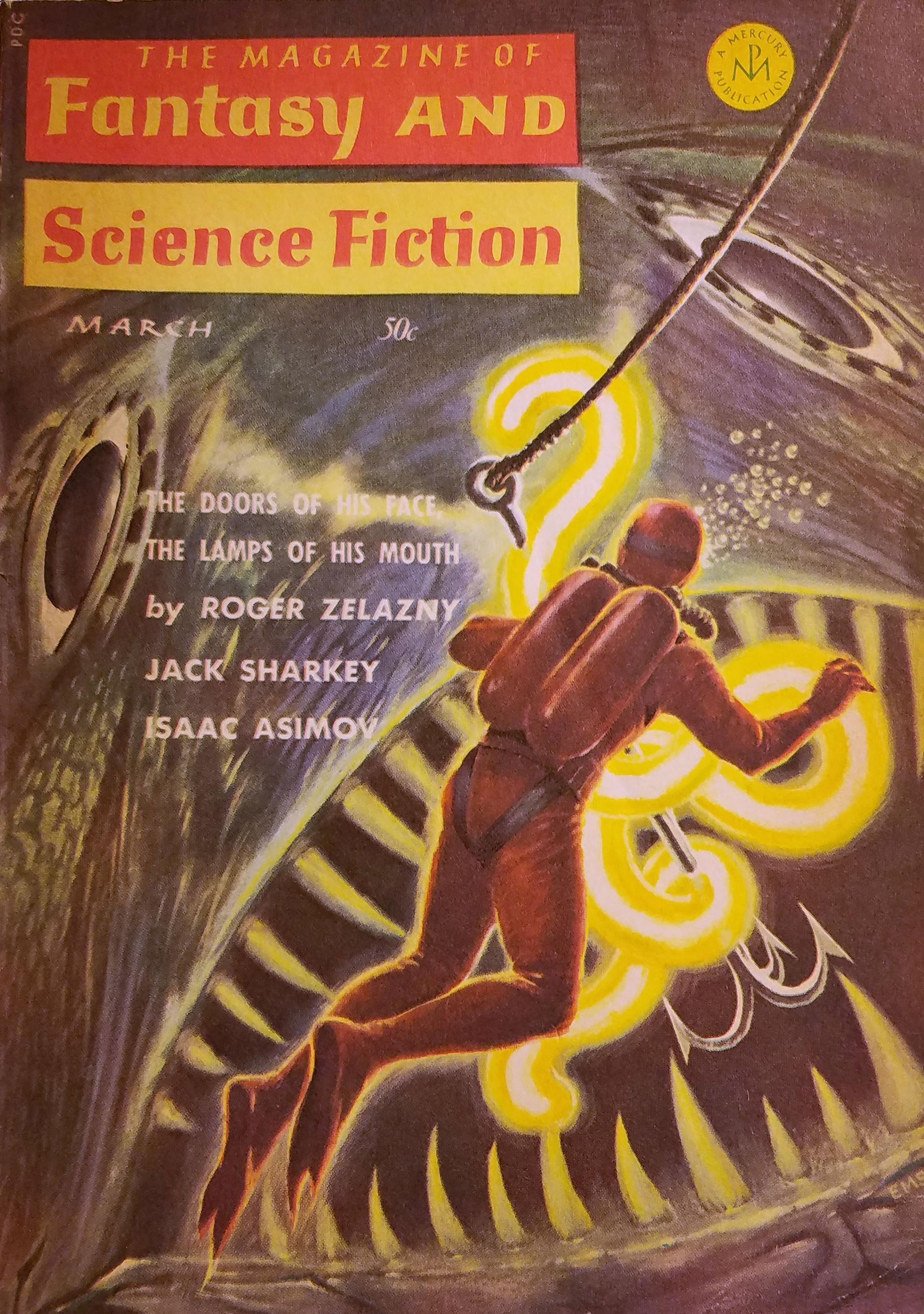
The Doors of His Face, the Lamps of His Mouth, by Roger Zelazny
In the sultry oceans of Venus resides a leviathan of a fish, a kind of mammoth angler called "Ikki". Bane to boaters, menace to fisheries, Ikki has been the target of big game hunters and professional exterminators. None have succeeded.
Rich dilettante Jean Lucarich is willing to pick up where others have left off, driving a 10-acre raft equipped with tranquilizer harpoons and giant cages off in search of the modern day Moby Dick. So keen is her desire that she has hired her old flame, a deep sea adventurer, to be a baiter. His job is to lure the Ikki in range of Jean's craft…and capture.
Persons who are more familiar with literary fiction can probably tell me what style Zelazny (the author) is going for. I found it overwrought and, in places, difficult to parse. But what bugged me the most was the utterly archaic (virtually Burroughsian) rendition of Venus. Zelazny's version of the Planet of Love is kinda warm, rather than 800 degrees Fahrenheit. Its day is roughly like an Earth's day, rather than 250 days long. The air is breathable, the water potable.
I nitpick because there's no way that the author doesn't know his Venus is wrong. Mariner 2, first interplanetary probe, finished its mission two years ago. It was in all the papers. Indeed, the story would have been more palatable had it taken place on Earth, say, in some remote corner of the Indian Ocean. It might even have been so, originally — some reject planned for Collier's or some other mainstream mag.
Anyway, it's not bad, but it's not really SF, and I found it too consciously literary. One Bradbury is quite enough.
Three stars.
Final Appeal, by J. H. Brennan
This first piece by the Ulsterian Brennan involves the quest for justice when the judges are all automated. It's one of those pieces that requires such an implausible development of technology (in this case, no human involvement at all in the rendering of judgment) that the "clever" solution falls flat.
It doesn't help that the solution, itself, while it may appeal to the mainstream of society, will be distasteful to a more free-thinking sort.
Two stars, and only because it kept me along for the ride until the inevitable disappointment (which came about a page too late).
Essentials Only, by Jack Sharkey
An absent-minded professor accidentally opens up a portal to a virgin alternate-Earth. He invites his friend to join him for a lifetime of simple pleasures, but of course, they need to bring their girlfriends. And their girlfriends insist on some modicum of civilization. And that includes certain, essential people. And their possessions. And more luxuries, just in case. And so on.
Jack Sharkey varies between mildly impressive to (more often) rather dreadful. But this story is pleasantly droll, inoffsenive.
Three stars.
The End of Eternity, by Ernesto Gastaldi
According to F&SF's new editor, Joseph Ferman, the state of Italian SF is pretty poor: mostly send-ups of cliches we abandoned in the Pulp Era. But, Ferman promises, this imported tale (translated by Harry Harrison) is something different.
He's wrong. End takes place in modern day Rome on the eve of its nuclear destruction. The bomb that will destroy it, scientists say, is so powerful that the space-time continuum might be ruptured. By the way, the protagonist is named "Romulo", and the story is redolent with reminders of the antiquity of the city. Can you guess what will happen?
Two stars for this Italian version of the creation myth.
Tripsych, by Ron Smith
Ferman praises Smith for his satirically broad rendition of three hoary SF ideas in as many vignettes. However, the world doesn't need more bad stories, even if their badness is intentional.
Two stars.
Illusion, by Walter H. Kerr
In 1951, J. T. McIntosh wrote Hallucination Orbit, the definitive tale on cracking up while on solitary assignment in space. Kerr's poem is on the same topic and compares unfavorably in all respects.
One star.
Better Than Ever, by Alex Kirs
There's a movie playing "over there". It takes a month to watch, and no one can tell you what it's about. But those who see it come back…changed. More mature, no longer plagued with their frailties and foibles. Better, one might say. An adman named Clinton is one of the last, stubborn holdouts, increasingly alienated as everyone he knows, one by one, goes to see this movie.
This is his story.
Well, sort of. Nothing much happens in this short piece, mostly just a portrait of social isolation — an isolation Clinton refuses to remedy with the obvious solution. Can you blame him?
Anyway, it's a fair piece, I guess. Probably some kind of metaphor. I don't know.
Three stars, sure.
Oh, East is East and West is East, by Isaac Asimov
In a recent Analog, editor Campbell included a geographical quiz: which states of the U.S.A. are the farthest North, South, East, and West? It's kind of a trick question since it hinges on the fact that Alaska straddles the 180th meridian and, thus, is both the farthest East and West (and North, but that's obvious to anyone who's read the paper since 1959, when Alaska became a state).
I got the answer right, but then, my first book was an atlas. The Good Dr. A. got it wrong, and thus produced an article to explain why he was really right. It's cute, but it doesn't tell you any more than a decent map would.
Three stars.
Ado About Nothing, by Bob Ottum, Jr.
There is a wall at the end of the universe posted with a sign that says that nothing exists beyond the wall. If you don't believe it, put a quarter in the wall and look through the peephole for yourself.
It's a silly vignette, but it appealed to the former editor, Avram Davidson, whose collected materials Ferman is apparently still depending on.
Two stars.
Uncollected Works, by Lin Carter
If 50 million monkeys at 50 million typewriters could eventually produce the works of William Shakespeare, what could a computing machine with infinite monkeys worth of random creative capacity produce?
Lin Carter has been around for a while, at least in SFF and Lovecraftian fandom circles, but this is the first story of his I've run across. Told from the perspective of an old literary critic, given to sentimental verbosity, it's a charming piece. It doesn't make a lick of sense, but it's charming. I feel like a little more thought could have made the scientific conceit more plausible, which would have then made the story more effective.
Three stars, anyway.
Maiden Voyage, by J. W. Schutz
Thankfully, the end of the issue is the bright spot. Schutz, currently American Consul General in Tangiers (Morocco), offers up this novelette in epistolary, detailing a scientific mission to Mars in the mid 2030s. Refreshingly, it stars a woman, and in a chatty, engaging style, describes the rigorous training, arduous journey, and perilous events that she endures.
It's straight science fiction, more what I'd expect from Analog than F&SF these days, and I enjoyed it. Bravo, especially for a first effort.
Four stars.
War Report
Both Vietnam and F&SF have been troubled spots for some time, with only isolated moments of hope to keep us going. I guess the question is this: do we continue to throw good money after bad? Maybe we should stick both out for another year and see what happens. If neither improves, maybe it's time to pull out, at last…
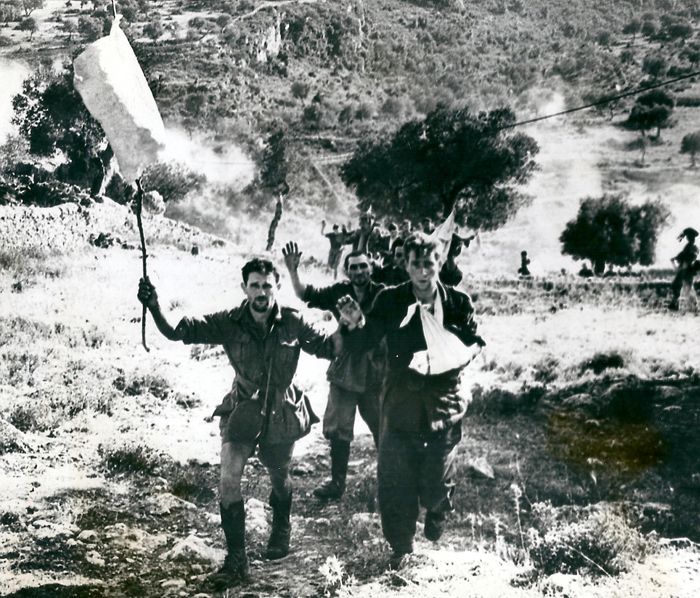

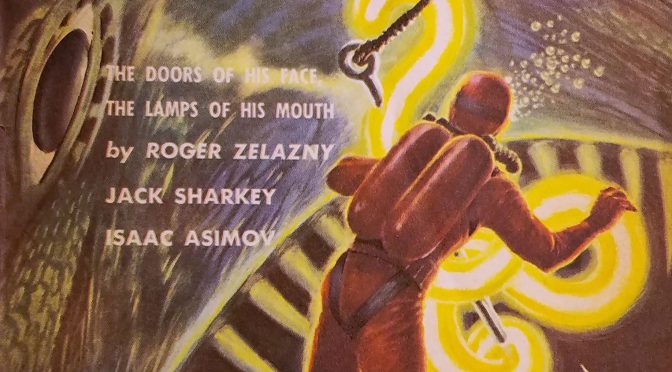

There must be something wrong with me today, because I'm about to offer some strong disagreement with our host.
(Not about Vietnam. That's going to be a disaster, no matter if We win, or They win, or if it turns out to be another stalemate.)
Anyway, I'd give a very high rating to the Zelazny. I'm no expert in literature, but if I had to label the style of this story I'd say it's an unlikely combination of Hemingway and Bradbury. (The fact that I like Bradbury more than you do may explain some things.) As for the lack of scientific accuracy, sure; this is a fantasy, no more real than Bradbury's Mars. Anyway, I liked it.
"Final Appeal" didn't do much for me, "Essentials Only" had enough of a satiric edge to make it worth reading, and I liked "The End of Eternity" well enough. (Maybe that's because the author is a screenwriter, penning many of the Italian Gothic horror films I enjoy, even in the censored and poorly dubbed versions we get over here.) Tripsych wasn't worth much.
I very much enjoyed "Better Than Ever." In fact it was my favorite story in the issue.
"Ado About Nothing" is just a one-line joke, and "Uncollected Works" was written well, if silly.
Which leaves my final bombshell.
I didn't like "Maiden Voyage" at all. I thought it was amateurish.
No accounting for taste, I guess.
There's no question in my mind that Viet Nam will turn into a quagmire, assuming it already hasn't. In Korea at least it wasn't the US going it alone. We were there ostensibly as part of the UN forces in response to an unprovoked attack by the north. In Indochina, we seem to have simply stepped in as a colonial power for France after they decided it was too much trouble.
Well, we agree there. But when it comes to this month's F&SF, there are a couple of pretty big differences.
The first is with the Zelazny. As far as I'm concerned, he knocked this one out of the park. A solid four stars for me. Yes, his Venus is archaic, but aren't you the one who said he just thinks of these out-dated Venuses and Marses as planets in some other solar system? I also didn't find the style overly literary. That was certainly more the case with "A Rose for Ecclesiastes" than it is here. There's subtlety here (for instance the reveal of just who the narrator is). Grand stuff.
"Final Appeal" on the other hand was just bad. It's a low two stars for me, and only because I actually finished it. Otherwise I'm in perfect agreement.
I'm also inclined to give Sharkey only two stars. The story went on far too long. It very quickly became obvious where he was going and then it took him forever to get there.
I would wonder if the problems with the Italian piece were down to Harrison as a translator. But this hoary old thing was horribly obvious. I also rather doubt the Soviets would pick Rome for their strategy. Moscow is supposed to be the Third Rome, after all. They're also savvy enough not to anger all the Catholics around the world.
Two stars is generous for "Tripsych". At most, I give him credit for using a different person for each vignette.
The poem was pointless. It actually started reasonably well, but went off the rails somewhere around the fifth line. Also, why a sonnet structure, but no rhyme scheme?
Dr. A's article was a whole lot of guff to try and cover up his error. His answers don't fit with the questions Campbell asked. (And, of course, Campbell screwed up, too. He conflated the 180th meridian with the International Date Line. At least he owned up to his mistake.)
"Ado About Nothing" was silly and pointless. No arguments from me on this one.
The Carter was pretty good. I've read one or two other things by him and didn't much care for them. Definitely on the fantasy side of the ledger, but a very enjoyable read.
I find myself hard-pressed to give "Maiden Voyage" that fourth star. The narrator was a little too chatty, especially once we got to the parts where communication was severely restricted. I also found her a little too flighty and, well, girly for a scientist who must be in her late 20s or early 30s.
So, definitely not as good as last month, but I'm not sure there's cause for despair just yet. The lows may have been low, but the highs were pretty high. And next month we're promised the sequel to the Anderson that got last month off to such a good start and a new Asimov story.
Who was the narrator in the Zelazny?
I mean the fact that the narrator was one of the wealthy people whose fortunes were destroyed trying to catch Ikki. He never directly owns up to it. When he gives the history of Tensquare, he mentions his involvement entirely in the third person, using his full name, Carlton, while everybody just calls him Carl. The only clue is when Jean calls him by his last name a few pages later. It's easy to miss. I had to flip back to check the names. The way he hides that information tells us a lot about his character.
Oh, right. I did catch on to that.
I was also disappointed with "The Doors of His Face, the Lamps of His Mouth." It feels like Zelazny is trying to do for Venus what he did for Mars in "A Rose for Ecclesiastes" – one of my all-time favorite stories. Too many of Zelazny's stories have the tough-guy Hemingway voice. It worked well for me in Rose, but not Doors.
And we know too much about Venus after Mariner 2 now to accept stories like these. NASA is going to ruin a lot of science fiction. But I'm crossing my fingers for Mars.
What I love about the Journey is that the casual reader can interpolate from the reviews and the comments just how good the stories were!
If you think Zelazny's piece is literary I think it is a good thing you don't read the British magazines, Moorcock would probably call it pulpy nonsense! For me it was fine and enjoyable, not ground breaking but a good time. Preferred his He Who Shapes in Amazing much more even though this seems to be the one getting all the hype right now.
On Brennan's piece (whose bio weirdly seems to imply Ulster is a town in Northern Ireland) I found it an interesting idea but also fell flat.
I continue to find Sharkey's work pointless to me and this continued that trend.
End of Eternity the only thing I found interesting was the writing style was engaging, but I feel that might have as much to do with Harrison being such a skilled wordsmith as anything else.
Tripsych is more annoying than anything else than smart.
Better than Ever was a rather wonderful piece, I can see myself thinking on it for a long time (But what's this nonsense about his bio being eaten by an Armadillo all about? I don't appreciate editors trying to be cute)
The fact that Ado About Nothing was apparently chosen by Davidson explains a lot about its pointlessness.
I found Lin Carter's story to be really fascinating and beautiful. One my favourite shorts this year.
Then finally Maiden Voyage, I didn't like but, as you said, this is very Analog style of science fiction and there is a reason I don't regularly pick up that magazine.
So I am growing slowly more fond of this new direction for F&SF, albeit perhaps different parts from other readers. It is still not amazing (pun intended) but certainly better than where it was last year.
I do wonder if they shouldn't think of moving away from so many Vignettes? They are rarely of high quality and I do wonder if you couldn't may take out 2 or 3 and have a better short story for your money?
When F&SF does good vignettes, they are the best, though.
Also, for some reason, women tend toward the short pieces, so I'd hate to exclude any authors on the basis of story length.